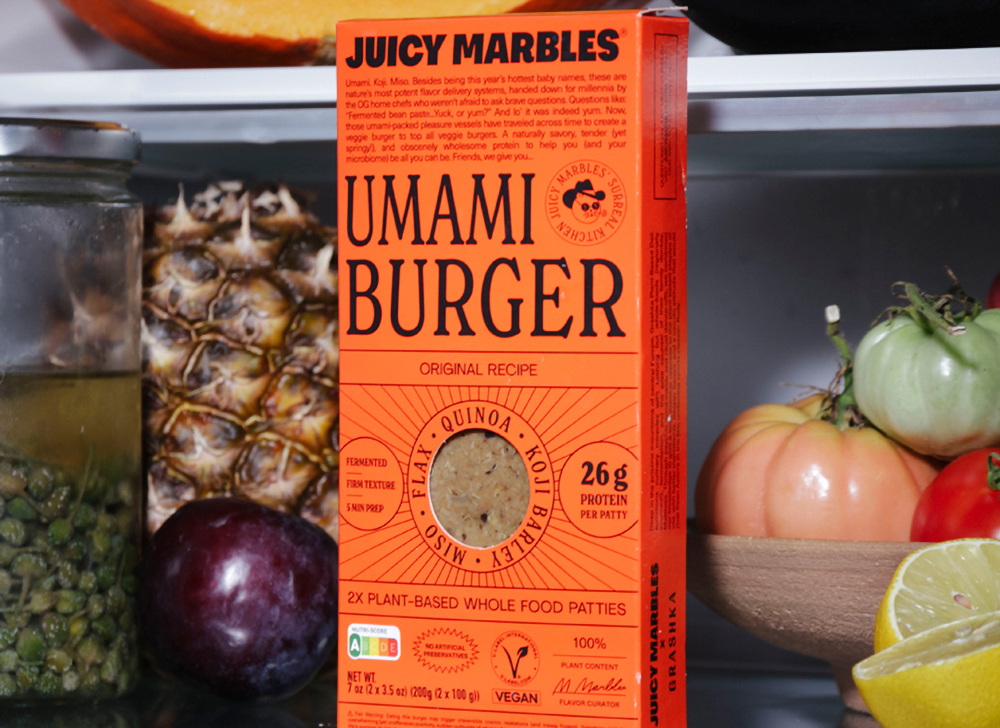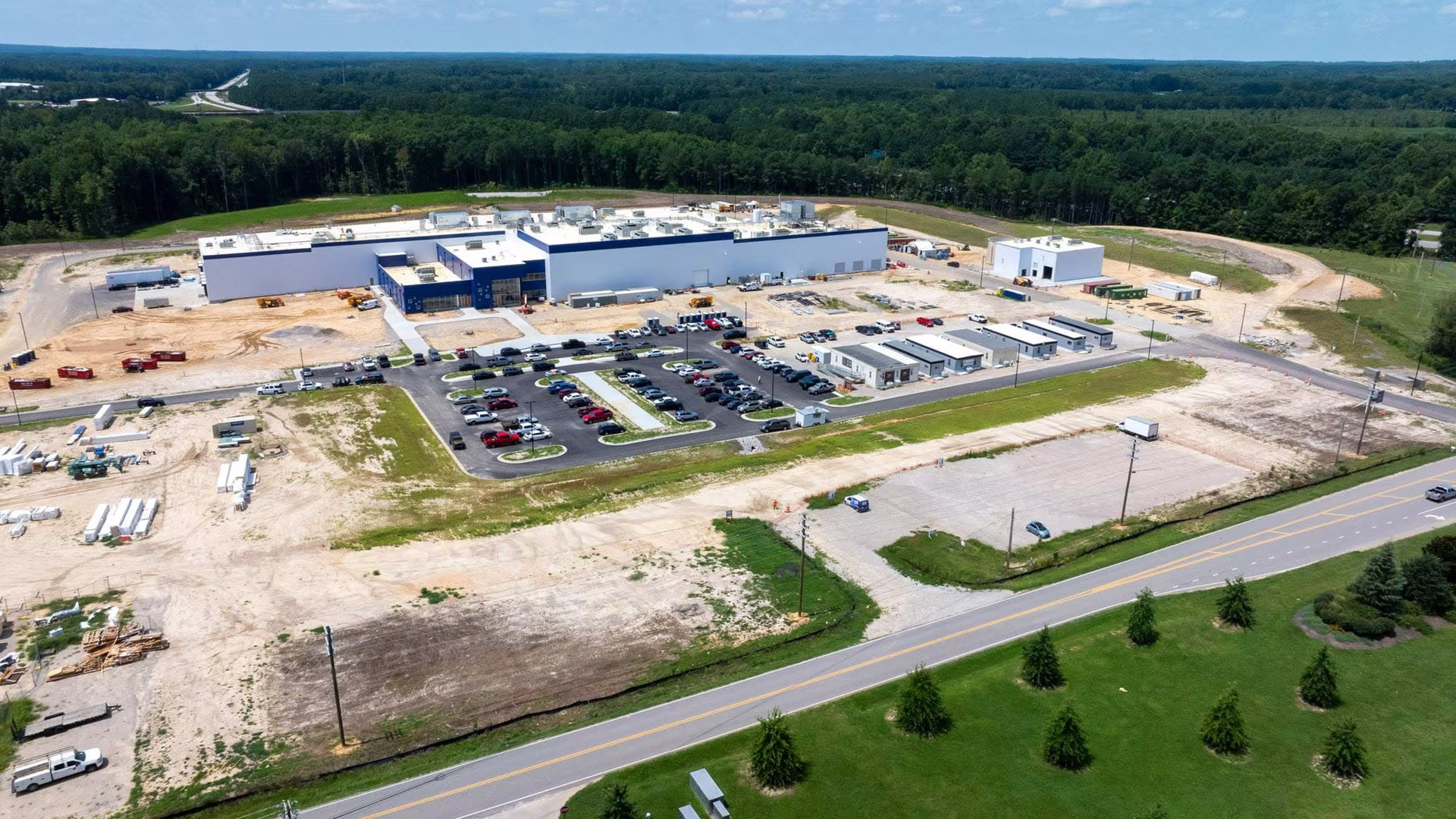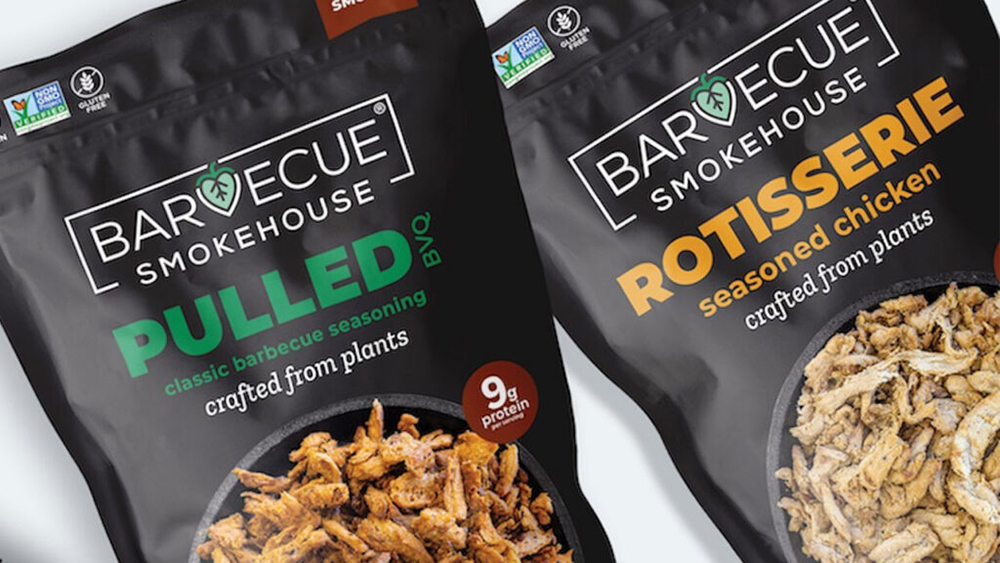
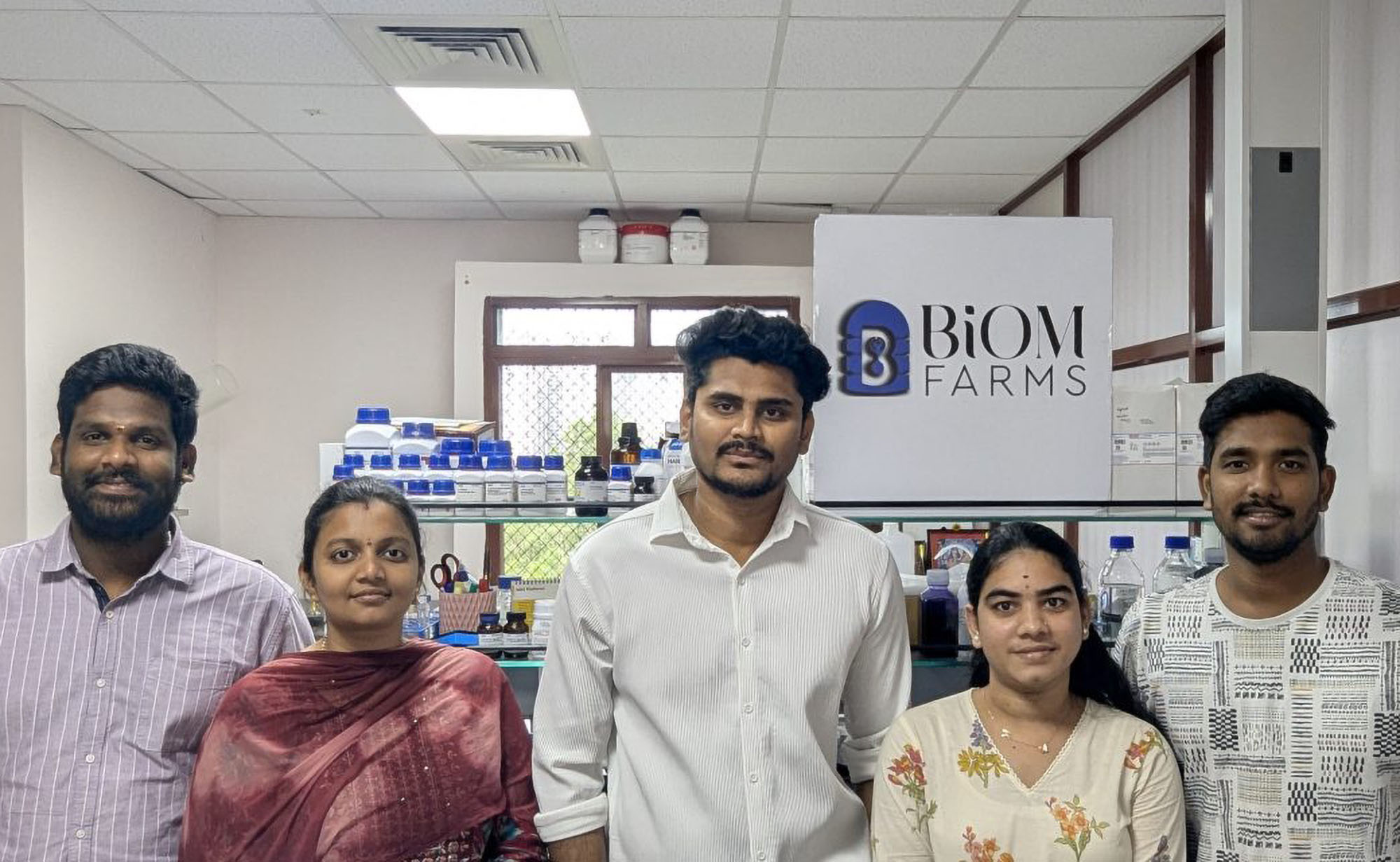
BiOM Farms takes aim at cultivated meat’s biggest cost barrier with animal-free media
BiOM Farms, a biotechnology company incubated at the University of Hyderabad, is seeking to tackle one of the greatest challenges facing the cultivated meat industry: the cost of cell culture media. By developing animal-free, consistent, and scalable alternatives to fetal bovine serum (FBS), the company hopes to accelerate the path toward a more ethical and sustainable food system.
Founded in 2024 as BiOM Innovations Pvt. Ltd., the startup is the brainchild of biochemist and stem cell biologist Yadidya Mandalapu. With a background in regenerative medicine and molecular biology, Mandalapu chose to step away from a PhD program at IIT Kanpur to pursue entrepreneurship. His vision is to eliminate reliance on animal-derived supplements while creating affordable and reliable media formulations for cell-based meat producers.
For decades, FBS has been a staple in cell culture. Yet it carries a series of drawbacks: high cost, ethical concerns related to animal use, batch-to-batch variability, and the potential for contamination. BiOM Farms aims to replace FBS with a fully animal-free solution that meets the demanding requirements of cultivated meat companies. The approach promises not only greater sustainability but also consistency, a factor seen as essential for scaling production.
BiOM Farms is developing spontaneously immortalized chicken fibroblast cell lines as a research platform. These cells are being characterized for safety and adapted for suspension culture, a move designed to make large-scale production feasible. At the same time, the company is advancing its serum-free media formulations, tailoring them to the industry-relevant cell lines used by cultivated meat startups worldwide.
Progress has also been made in recombinant growth factor production, a key element in reducing costs. Growth factors, which drive cell proliferation, are among the most expensive components in current media formulations. By creating efficient methods of production, BiOM Farms hopes to bring the overall price of cultivated meat down to levels competitive with conventional animal protein.
International collaborations are a central part of this effort. Partnerships with global research groups and companies provide technical expertise, new perspectives, and opportunities to accelerate development. Through these links, BiOM Farms is building the know-how needed to translate laboratory success into commercial-scale impact.
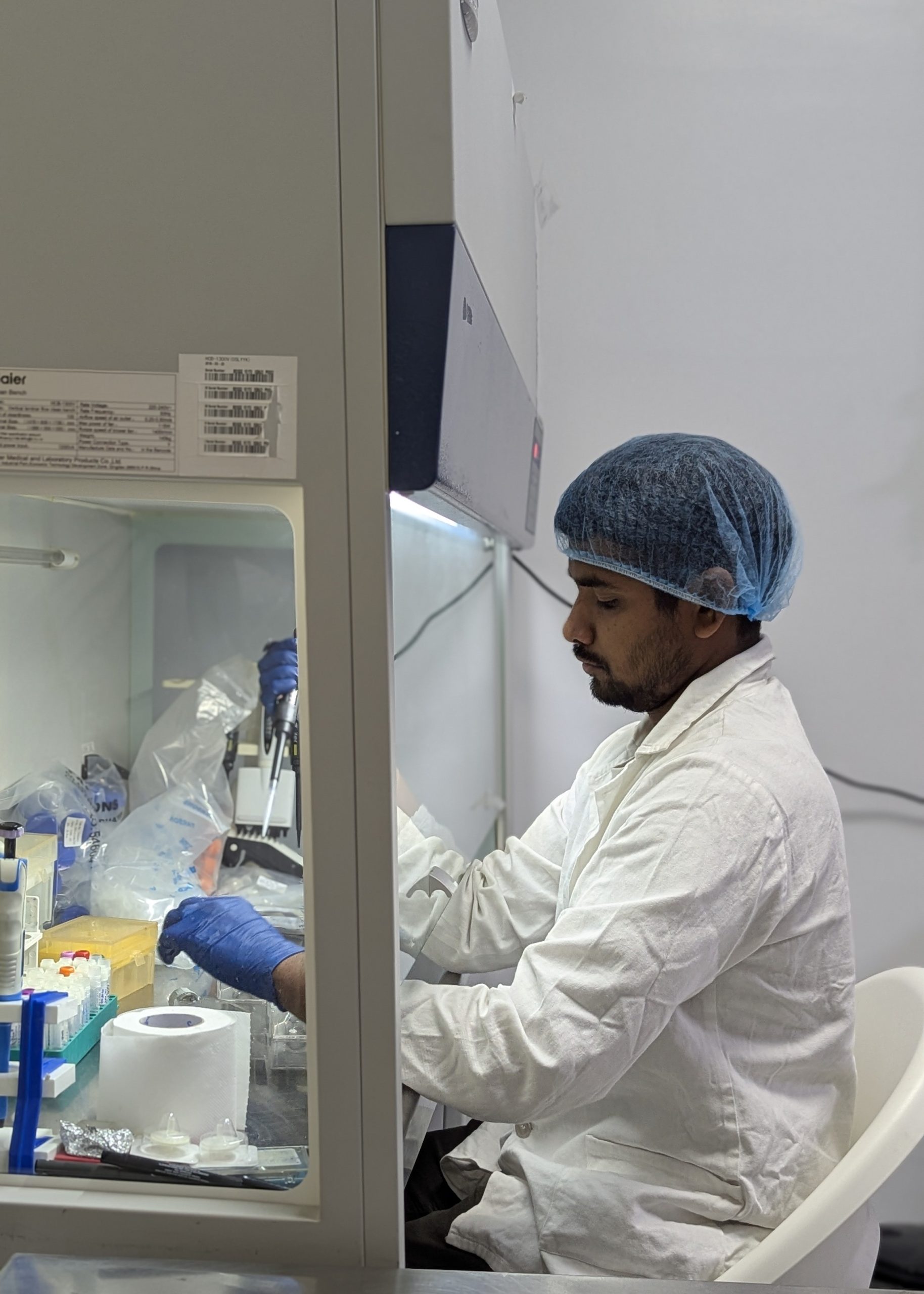
The startup follows a business-to-business model. Its offerings include animal-free media solutions for cultivated meat and biotech companies, recombinant growth factors for both the food and regenerative medicine sectors, and technology licensing agreements with industry partners. By working across these avenues, BiOM Farms intends to position itself as a supplier of essential tools rather than a consumer-facing brand.
Still, challenges remain. Scaling from laboratory research to pilot-scale production requires infrastructure that is not widely available in India. Recombinant proteins remain costly to manufacture, and specialized bioprocess facilities are limited. These barriers, if not addressed, could slow down the company’s path to commercialization.
To overcome them, BiOM Farms has outlined several needs for the cultivated meat ecosystem in India and beyond. Access to pilot-scale fermentation and purification facilities would help bridge the gap between R&D and production. Greater support for regulatory compliance and intellectual property filing could smooth the path to market. And expanded industry linkage programs would create stronger connections with investors, policymakers, and fellow innovators, accelerating commercialization.
Incubation at ASPIRE BioNEST, the life sciences incubator at the University of Hyderabad, has been pivotal. The program provides access to molecular biology, microbiology, and cell culture facilities, as well as oversight through institutional biosafety and ethics committees. BiOM Farms also benefits from mentorship, academic collaborations, and introductions to business partners. University-driven events and outreach initiatives offer opportunities for networking and visibility, while government grants facilitated by the incubator provide early-stage funding support.
Mandalapu credits his mentors for shaping both his scientific foundation and his entrepreneurial trajectory. At the University of Hyderabad, he studied under Prof. Krishnaveni Mishra during his master’s in biochemistry between 2018 and 2020. He also acknowledges the support of Dr Anil Kumar Pasupulati, Prof. S. Rajgopal, Director of ASPIRE, and Dr Anil Kondreddy, CEO of ASPIRE, who have all played a role in providing the environment that enabled BiOM Farms to take root.
Driven by a mission that combines sustainability, animal welfare, and nutrition, Mandalapu sees cultivated meat as a way to redefine the future of food. His focus on reducing one of the industry’s biggest cost drivers – media – reflects a pragmatic approach to enabling commercial viability.
While the company is still early in its journey, its progress in developing immortalized cell lines, advancing recombinant growth factors, and formulating serum-free media demonstrates the momentum behind its ambitions. For the cultivated meat sector, where cost and scalability remain key hurdles, companies like BiOM Farms are emerging as essential players in building the infrastructure of a new food system.
As Mandalapu leads his team from the lab bench toward larger-scale validation, BiOM Farms is positioning itself not only as a startup solving technical bottlenecks but also as a contributor to a broader vision: making sustainable, ethical protein a reality for global consumers.
If you have any questions or would like to get in touch with us, please email info@futureofproteinproduction.com





